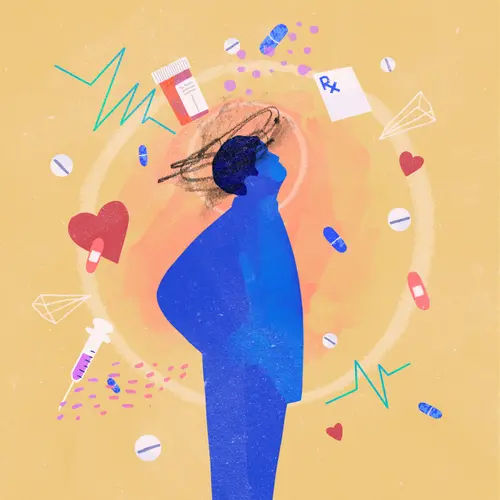Needles are used in some of the most common and vital procedures, yet around 25% of US adults fear them. It is estimated that approximately 16% of those people may skip a procedure due to this fear. Some may even skip going to the doctor altogether due to this fear.
While the level of fear and anxiety ranges from person to person, fear of needles can greatly affect your life.
Fear of Needles vs. Trypanophobia
Firstly, it is essential to understand that not everyone afraid of needles has a phobia of needles. Fears and phobias are different.
Fears. Fears are something that every single person has to deal with. It is normal and natural to feel anxious about certain things, especially when it involves large needles coming into your skin.
Phobias. Phobias are technically an anxiety disorder that presents much more extreme symptoms and feelings.
Fears often develop from a well-grounded space, like fear of the pain of getting an injection. However, phobias are when someone has an exaggerated sense of danger from a situation or object. You might feel anxious or triggered by just thinking of a needle, or you might have a panic attack every time you see or are touched by a needle.
What Causes Trypanophobia?
There is no one proven cause of phobias, and sometimes you might not even know why you have a phobia. Still, it is commonly believed that phobias can come from either a traumatic incident or learned behavior from your childhood. Researchers have found that fainting after needle sticks, and trypanophobia, sometimes run in families.
Symptoms
Aside from a pervasive fear or general distaste for needles, some of the specific symptoms can include:
- Panic attacks
- Nausea
- Sweats
- Heart palpitations
- Fainting (due to a drop in blood pressure when you see blood or feel the pain of the needle)
When to Seek Help. You may need to seek help if you have any of the following because of your phobia of needles:
- Lessened quality of life. If you spend weeks or days losing sleep or constantly worrying about a doctor’s appointment, that can take a toll on your quality of life.
- Avoiding needed treatments. If you constantly avoid tests or procedures that require a needle prick, that could lead to poorly managed conditions and worse. For example, if you have diabetes and avoid testing your blood, that could lead to death. Similarly, if you resist vaccinations, you also put yourself at risk for a whole slew of diseases and conditions that could otherwise be avoided.
- Preventing routine medical check-ins. Avoiding the doctor altogether due to your fear of needles is extremely dangerous. You put yourself at risk and there is a greater chance you could develop a life-threatening condition.
If you experience these and other extreme symptoms, you should seek help. Trypanophobia can be managed even if it does not go away entirely, and you should let your phobia dictate the level of healthcare you get.
Treatments
There are not very many studies on trypanophobia or proven ways to treat a phobia of needles.
However, you can use some of these techniques developed by experts:
- Bring a friend or family member to hold your hand and help calm you.
- Distract your mind with either your thoughts, pictures, or videos as the needle is inserted.
- Let the person using the needle know you have a phobia. They can work with you to make you feel the most comfortable.
- Ask the doctor or medical provider to use a numbing agent before or during the needle stick so the sensation is less.
- Many people feel that watching the procedure makes their phobia worse. Look away while your provider pricks you.
- Learn breathing and relaxation techniques before you go to your appointment. During your shot, it may be helpful to use these techniques if you start to feel yourself spin out.
- Develop a way to relax the muscles at the site of your prick or injection. If those muscles are tense, it can intensify the feeling of the needle,
- If you have a history of fainting before getting shots or blood tests, you should lie down before you get pricked.
Therapy. In addition to those techniques, you may also want to see a mental healthcare provider. Having a professional helping you can significantly take the pressure off yourself to find a new way to react to your phobia. This is especially true if you experience a physical response to the sight, feeling, or idea of needles, such as fainting.
Some of the unique treatment methods that a mental healthcare provider can prescribe are:
- Cognitive-behavioral therapy (CBT).CBT is a unique type of therapy that helps you reform your thinking and build new, more helpful ways to cope with difficult emotions.
- Exposure therapy. Exposure therapy is an effective therapeutic style designed specifically for phobias. It involves slowly getting exposed to needles throughout several weeks or months. At first, you will be exposed to photos of needles. Then you will hold a syringe with no needle. Then you'll hold a syringe with a needle until you finally feel more comfortable with the idea of an injection.
- Medication. Depending on your situation, your provider might also prescribe you anti-anxiety or sedative medications.

